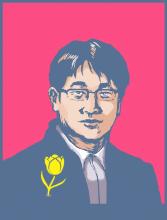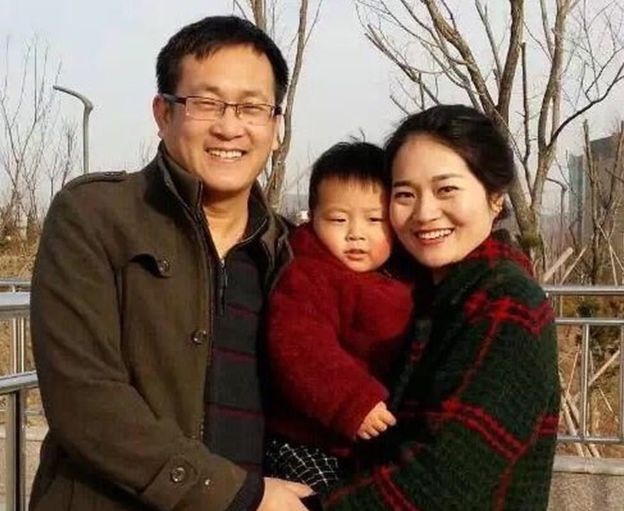Chinese HRDs Wang Quanzhang & Li Wenzu nominated for Tulip Award
 [30 March 2020] Safeguard Defenders have nominated rights defense lawyer Wang Quanzhang and his wife Li Wenzu, who is also a human rights defender, for the 2020 Tulip Human Rights Award.
[30 March 2020] Safeguard Defenders have nominated rights defense lawyer Wang Quanzhang and his wife Li Wenzu, who is also a human rights defender, for the 2020 Tulip Human Rights Award.
The nomination is based on the innovative way that Wang approached the defense of human rights and the promotion of due diligence and rule of law. He pioneered methods that continue to be used to this day despite Wang’s disappearance in August 2015 at the hands of the Chinese police as part of the nationwide war against human rights lawyers, called the 709 Crackdown.
Li was instrumental in launching a support group to campaign not only for her husband's freedom, but for the many other lawyers persecuted under the 709 Crackdown. Along with other wives of disappeared rights lawyers, she also employed innovative ways to put pressure on the government. Her persistence and bravery has made visible totally new ways to campaign for rights in a country marked by increasing authoritarianism.
Lawyer Wang started to work on human rights issues in 2005, and after years of taking on extensive legal aid cases and training other lawyers and victims, became one of China’s key rights defenders. He has worked to expand access to legal assistance for victims, organize trainings for fellow lawyers, and to train victims to become citizen lawyers better capable of providing access to justice for others.
Wang used his own challenges as a learning opportunity for others. After being the first person ever to be placed in ‘judicial detention’, Wang designed a manual to teach others about it. His frustration with the arbitrary use of ‘administrative detention’ made Wang investigate the issue, produce a training guide on how to better deal with it, and organized repeated trainings for other lawyers in how to handle such abuses.

After Wang was disappeared in the summer of 2015, his wife Li Wenzu campaigned tirelessly on his behalf and with the wives of other disappeared rights lawyers, offering solidarity to each other during many frightening months that turned into years.
She petitioned the courts, made viral videos, reached out to global media and international governments, carried a signature red bucket, shaved her head and made a 100km trek from Beijing to Tianjin to draw attention to her husband’s plight and to seek justice for the arbitrary detention of him and the other rights lawyers. Step by step, more family members of other victims would join, creating a new type of movement -- the first of its kind in China.
As Wang is set for release on April 5, many observers fear that he will be placed under what Jerome Cohen has named ‘Non-release release’ (NRR), to simply disappear again, locked up somewhere and held incommunicado, for weeks, months or even more than a year. This award would go a long way to keeping the spotlight on Wang at this sensitive time.
It's not the first time that Wang has been disappeared. In 2015 he was held incommunicado in RSDL for six months during the 709 Crackdown. After his arrest and transfer to a pre-trial detention center, he was registered using a false name, ensuring that his wife could not locate him for nearly three years after he had first disappeared. Wang's sudden secret trial at the end of 2018 was one in which he was even denied legal representation.
For her tireless campaign work, Li has been arrested, subjected to house arrest, kicked out of her rented apartment and her son has been denied admittance to an elementary school. Throughout, she has never stopped speaking up for her husband and for human rights in China.